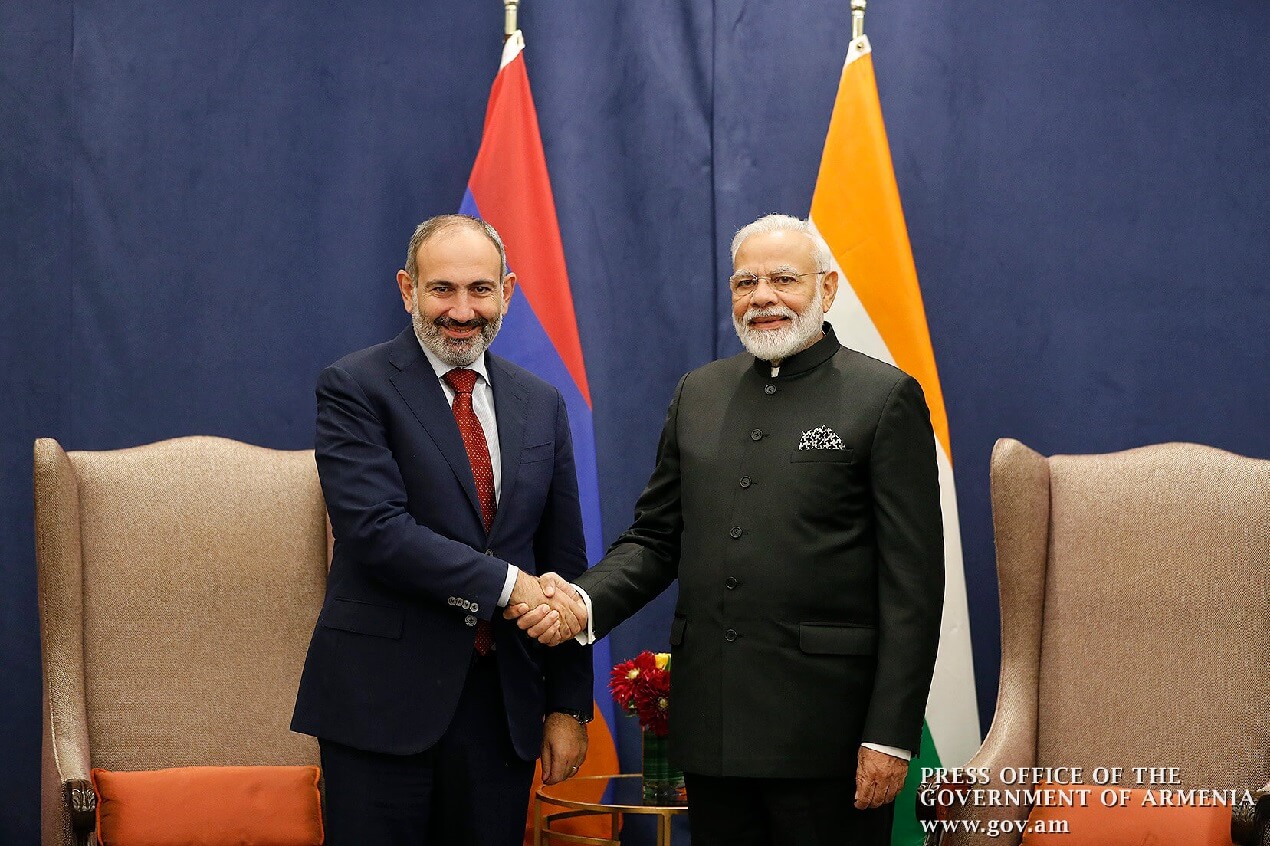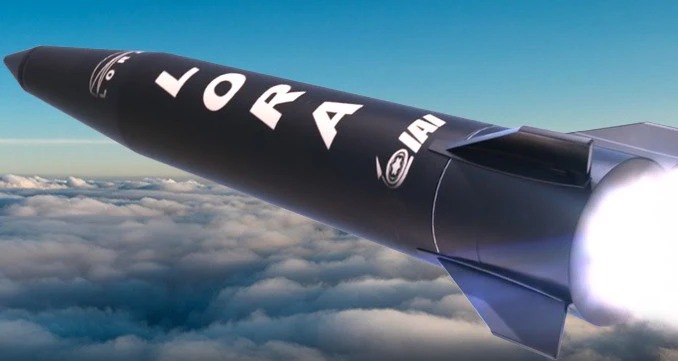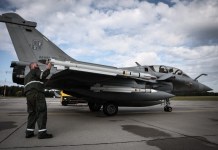India and Israel have emerged as the most trustworthy partners of each other over the last few years. Israel is one of the largest arms suppliers to India, while Tel Aviv extended full support to New Delhi during Operation Sindoor.
Similarly, India has resisted the growing calls for Israel’s diplomatic isolation following its war in Gaza, and the two countries have maintained a robust defense partnership.
According to the Stockholm International Peace Research Institute (SIPRI), Israel was the third-largest arms supplier to India between 2020 and 2024. Israel supplied 13 percent of India’s weapons imports during this period.
Similarly, according to SIPRI, between 2020 and 2024, India was the largest destination for Israeli arms, accounting for as much as 34%, or nearly one-third, of all Israeli arms exports.
However, despite this robust defense partnership and geopolitical alignment on a range of issues from terrorism to the Turkish Republic of Northern Cyprus (TRNC), India and Israel are in opposing camps in the South Caucasus, where they are supporting and arming warring parties.
In this region, Armenia and Azerbaijan are at odds and have engaged in wars, as well as numerous border skirmishes. And although the two countries signed a peace agreement in the US in August, the potential for another war remains high.
However, India and Israel have thrown their weight behind opposing parties in this region. Over the last four years, India has emerged as the largest arms supplier to Armenia, while Israel has become the primary supplier of military equipment to Azerbaijan.
While India’s decision to support Armenia was an obvious choice, given that Azerbaijan has aligned itself with Turkey, Pakistan, and the Azerbaijan troika, Israel’s decision to support Baku is a little odd, given that Turkey, Tel Aviv’s primary competitor, and a known Hamas backer in the region, is also one of the main supporters of Azerbaijan.
Given the high probability of another clash between Armenia and Azerbaijan, India and Israel will need to walk a diplomatic tightrope to ensure that their mutually exclusive, even antagonistic, interests in the South Caucasus do not harm their overall partnership.
India-Armenia Defense Partnership
Armenia, as a former Soviet Union republic, has traditionally relied on Russian arms for its defense needs.
However, in the wake of Russian preoccupation with the Ukraine war and Azerbaijan’s increasing assertiveness on the border, Yerevan felt the need to diversify its arms suppliers.
In 2022, Armenian Prime Minister Nikol Pashinyan, without naming Russia, said, “Our allies have failed to deliver weapons to Armenia despite contracts signed with them in the last two years”.
Another factor was that, despite being a founding member of the Collective Security Treaty Organization (CSTO), a Russian version of NATO that also has a clause on collective security, Moscow failed to come to Armenia’s rescue when Azerbaijan attacked it.
Alen Simonyan, the speaker of the Armenian parliament, expressed disappointment with the CSTO, stating that the alliance was like a “gun that does not shoot”.
Armenia, which is surrounded by adversary countries on both sides – Azerbaijan to its East and Turkey to its West – concluded that it can no longer rely solely on Russian security guarantees and must diversify its defense partnerships and establish new allies.
In the changed geopolitical scenario, France and India emerged as its two primary backers.
Armenia is increasingly turning to India for military support, making significant purchases of Indian-made weapon systems, including the Akash-1S air defense system, as part of a US$2 billion defense partnership signed in 2020.
Armenia, which placed an order for 15 Akash missile systems in 2022 valued at US$720 million, will be the first foreign buyer of the platform.
Armenia has already emerged as the largest importer of Indian weapons.
A recent report from the Indian Finance Ministry said, “The former Soviet Republic of Armenia has become the largest importer of weapons from India after concluding deals on the purchase of Pinaka multiple-launch rocket systems and Akash anti-aircraft systems.”
Under multiple deals, India will supply howitzers, anti-tank rockets, air defense systems, and anti-drone equipment to the Armenian army.
In 2023, Yerevan appointed a defense attaché to its embassy in New Delhi, a move aimed at strengthening military cooperation with India.
Notably, Russia was the largest exporter of major arms to Armenia over the past decade, accounting for 94 percent of Armenia’s major arms imports from 2011 to 2020.
However, according to SIPRI, currently, India is the largest arms supplier to Armenia, accounting for 43% of all weapons supplied to the country between 2022 and 2024.
India’s decision to support Armenia was an obvious choice to counter the emerging alliance of Turkey, Pakistan, and Azerbaijan. Pakistan has supported Azerbaijan during the Karabakh war, and Turkey is supporting Pakistan on the Kashmir issue.
The three countries signed the “trilateral Islamabad Declaration” in 2021 to show solidarity with Azerbaijan after the Karabakh war. Similarly, Baku supported Islamabad during the India-Pakistan war in May this year.
“India’s relations with Turkey and Azerbaijan are not great. Therefore, any arms sales to Armenia are unlikely to affect our relations with them, especially so when both nations have openly sided and abetted Pakistan against India in the recent Operation Sindoor,” said Rajan Kochar, a senior adviser at Indic Researchers Forum, a Delhi-based security think tank.
Furthermore, Armenia provides India a strategic foothold in the South Caucasus region and can help New Delhi establish trade routes with Europe through Iran and Armenia.
Additionally, by supporting Armenia, India wants to counter-balance Turkish support for Pakistan.

Israel-Azerbaijan Defense Partnership
As explained, while India’s decision to support Armenia was an obvious choice, it is Israel’s support for Azerbaijan that constitutes a geopolitical oddity.
Not least because one of the principal backers of Baku is none other than Turkey, with whom Israel has a frosty relationship.
Turkey is a known backer of Hamas, and Ankara and Tel Aviv’s interests collide in Syria, Cyprus, the Eastern Mediterranean, and at many other places.
Thus, by supporting Baku, Israel is supporting and strengthening its own regional adversary, Turkey.
However, Azerbaijan’s proximity to Iran, Israel’s principal enemy in the Middle East, shifts the balance in Baku’s favor.
Iran has alleged that Israeli warplanes used Azerbaijani airspace during their aerial raids on Iran during the 12-day war in June, and there have been unconfirmed reports that Tel Aviv even has an air base in Azerbaijan.
Israel is also the largest arms supplier to Azerbaijan.
According to SIPRI, Israel accounted for 27 percent of Azerbaijan’s imports of major arms over the decade 2011–20. Most of these deliveries took place between 2016 and 2020, with Israel accounting for 69 percent of Azerbaijan’s imports of major arms during that period.
Even between 2020 and 2024, Israel accounted for nearly 65% of all Azerbaijani arms imports.
Israeli arms played a prominent role in Azerbaijan’s victory over Armenia in the Karabakh war.
Of the major arms supplied by Israel, loitering munitions, reconnaissance unmanned aerial vehicles (UAVs), guided missiles, and ballistic missiles were known to have been used in the 2020 war with Armenia, as well as during some of the earlier border skirmishes.
For example, Israel delivered HAROP loitering munitions to Azerbaijan for the first time around 2015. They were reportedly used in border skirmishes in 2016 and saw widespread use in 2020. Additionally, Azerbaijan operates several Israeli-produced Hermes-900 reconnaissance UAVs.
Israel also supplied Azerbaijan with LORA surface-to-surface guided ballistic missiles (with a range of 430 km) and the Barak-8 air and missile defense system.

According to SIPRI, these weapons were also used by Azerbaijan in its war against Armenia.
Ironically, Israel has also supplied many of these weapons systems, such as Harop loitering munitions, Barak-8 AD system, and Hermes-900 reconnaissance UAVs, to India.
Given Azerbaijan’s close relationship with Pakistan, there is always the danger of sensitive information about these weapon systems leaking to Islamabad.
Israeli company Elbit is also modernizing the Azerbaijani tank fleet, which primarily consists of Aslan T-72s.
Israel, according to reports, has supplied Baku with nearly 100 LORA (Long Range Artillery) missiles.
LORA is a theatre quasi-ballistic missile with a range of 400 kilometers and a CEP (Circular Error Probability) of 10 meters when using a combination of GPS and TV for terminal guidance.
Last year, the EurAsian Times reported that to counter the Israeli-supplied LORA missiles, Armenia is considering buying India’s domestically developed Pralay missile.
The Pralay is a mobile canister-based surface-to-surface SRBM (Short-Range Ballistic Missile) with a range of 150-500 km. It was developed from the Prithvi AD missile of DRDO’s BMD system.
The missile navigates to its target using inertial guidance. It can be controlled throughout its flight.
Israel also depends on Azerbaijan for its energy requirements. Azerbaijan still supplies at least 40% of Israel’s oil needs.
According to reports, in return for Israeli weapons, Baku has given a free pass to Mossad agents in the country to keep an eye on Iran.
Israeli newspaper Haaretz recently quoted foreign media sources disclosing, “Azerbaijan has allowed the Mossad to set up a forward branch [in Azerbaijan] to monitor what is happening in Iran, Azerbaijan’s neighbor to the south, and has even prepared an airfield intended to aid Israel in case it decides to attack Iranian nuclear sites.”
“Reports from two years ago stated that the Mossad agents who stole the Iranian nuclear archive smuggled it to Israel via Azerbaijan. According to official reports from Azerbaijan, over the years Israel has sold it the most advanced weapons systems, including ballistic missiles, air defense and electronic warfare systems, kamikaze drones and more.”
Given the volatile situation in the South Caucasus, another flare-up between Armenia and Azerbaijan cannot be ruled out. If and when that happens, Indian and Israeli weapons might have to battle it out against each other.
So far, India and Israel have avoided a direct confrontation, despite supporting the opposing warring camps in the South Caucasus region. However, such a scenario can emerge in the future, which can also negatively impact New Delhi’s relationship with Tel Aviv.
A case in point is the Russia-Turkey relationship. The two countries supported opposing camps in both Syria and Libya. They carefully managed the delicate balance for many years, but after some time, there was a blowback effect from these countries on the relationship between Moscow and Ankara.
New Delhi and Tel Aviv should pay attention to avoid such a scenario.
- Sumit Ahlawat has over a decade of experience in news media. He has worked with Press Trust of India, Times Now, Zee News, Economic Times, and Microsoft News. He holds a Master’s Degree in International Media and Modern History from the University of Sheffield, UK.
- VIEWS PERSONAL OF THE AUTHOR.
- He can be reached at ahlawat.sumit85 (at) gmail.com




